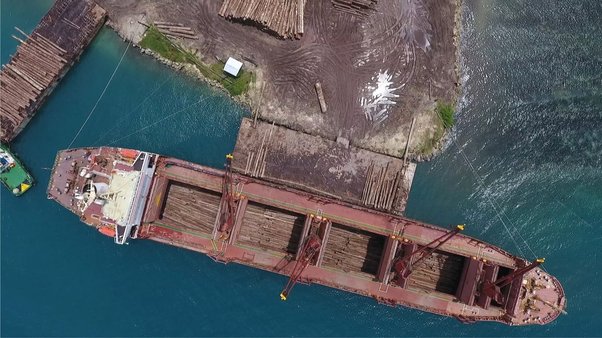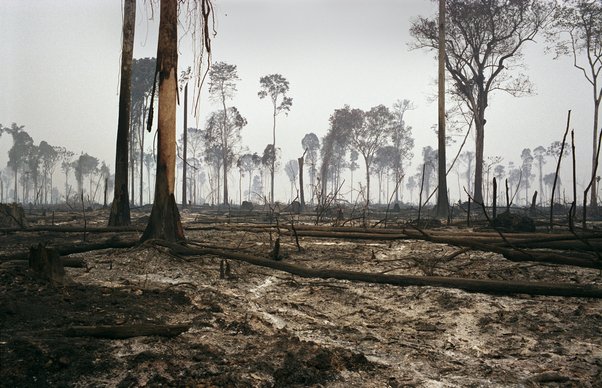Recent data shows that Chinese banks have become the largest creditors to “forest-risk” companies, after major producing countries Brazil and Indonesia
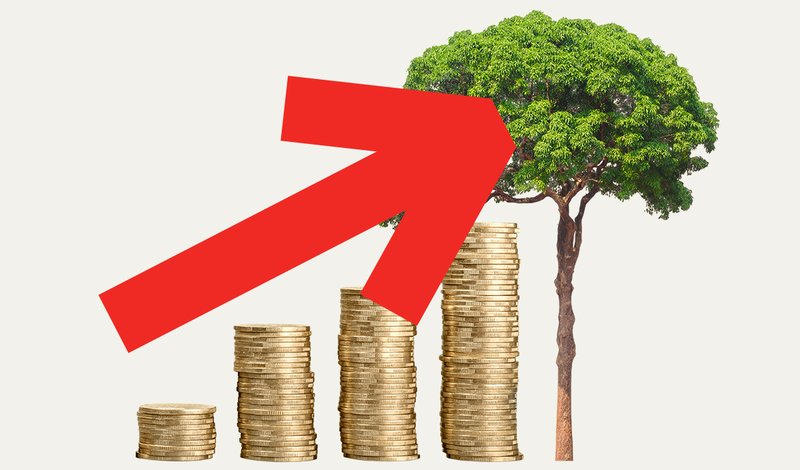
Key findings
- Recent data shows that Chinese banks have become the largest creditors to “forest-risk”* companies, after major producing countries Brazil and Indonesia, with over $23 billion in financing provided from 2018 to 2024.
- Key Chinese banks, including CITIC, Industrial and Commercial Bank of China and Bank of China, are among the top creditors for “forest-risk” companies such as Royal Golden Eagle Group, which has faced repeated allegations that its supply chain has driven deforestation.
- The increasing flow of finance to “forest-risk” companies undermines China’s climate and environmental goals under the Glasgow Leaders' Declaration and national Green Finance Guidelines.
- Meanwhile, Chinese banks rank poorly compared to their international counterparts in terms of deforestation-related policies, with four out of six major Chinese lenders scoring zero in the Forest 500 annual policy assessment.
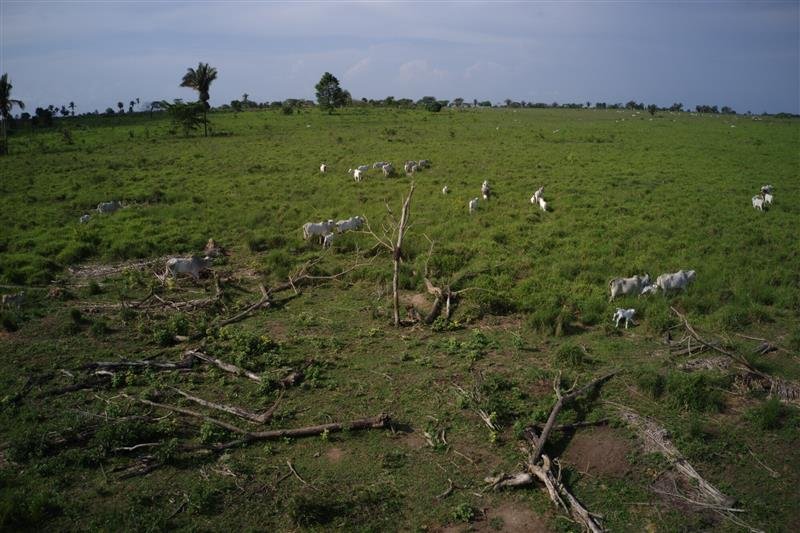
Cattle in Pará State of Brazil. 60% of tropical deforestation is linked to just three key products – beef, palm oil and soy. Fernanda Ligabue / Global Witness
Recommendations
- Chinese banks and regulators must take stronger action to cut ties with deforestation-linked companies.
- Chinese banks should publish and implement clear zero deforestation and human rights protection policies when financing “forest-risk” companies.
- Banks should implement China’s 2022 Green Finance Guidelines by establishing due diligence processes to identify, monitor and screen out clients linked to deforestation.
- Chinese banks should establish open communication channels to rapidly receive and address deforestation allegations from international community.
- The Chinese banking regulator should strengthen green finance policies with clear requirements that banks cease financial support to companies with deforestation-linked supply chains.
Ranking global contributors to "forest-risk" finance: China’s rise to the top
Chinese banks became the largest creditors of “forest-risk” companies globally between 2018-2024 – excluding financial institutions based in Brazil and Indonesia – according to a new analysis by Global Witness, based on data released in September 2024 by the Forests & Finance coalition.
This marks a shift from Global Witness’s previous reporting on Chinese bank finance in 2021, which used Forests & Finance data from 2013-2020. During this period, Chinese banks were the fifth largest creditors globally of major companies producing and trading commodities at high risk of driving deforestation.
The Forests & Finance database, compiled by Dutch research firm Profundo, tracks financial flows to over 300 “forest-risk” companies involved in agricultural supply chains such as beef, palm oil and soy production – industries that are major drivers of tropical deforestation.
Profundo’s methodology, including how it defines “forest-risk” companies, is summarised below.
The financial sectors of Brazil, Indonesia and Malaysia provide a disproportionate amount of “forest-risk” financing to commodity producers in their own countries and are excluded from this analysis, which focuses on international financial flows. When including these countries, China ranked third globally overall in 2023, the final year for which full data is available.
At COP26, countries like the US, France, the Netherlands and the UK pledged to end deforestation by 2030. However, private financial institutions based in those financial centres also remain some of the biggest supporters of “forest-risk” companies.
According to the data, between 2018-2024, Chinese banks provided a total of $23 billion in credit to “forest-risk” companies.
This figure for the seven-year period is higher than the figure provided in the seven-year period between 2014-2020 ($18 billion), indicating that the financial sector has failed to adjust lending practices to mitigate the damage some of these companies are wreaking upon global forests.
There are a handful of key Chinese banks among the top creditors providing “forest-risk” financing – CITIC, Industrial and Commercial Bank of China and Bank of China were the top three creditors between 2018-2024, according to the data.
The two biggest “forest-risk” recipients of this Chinese bank lending are Sinochem and Royal Golden Eagle Group (RGE), despite both RGE and its subsidiaries facing repeated deforestation allegations.
COFCO, a major Chinese agricultural trader, is the third-largest recipient. Despite the company’s multiple commitments to address deforestation, in 2024 COFCO was alleged to have sourced soybeans from illegally leased Indigenous lands in Brazil.
Just one year prior, another investigation challenged whether COFCO had done enough to ensure its soy and palm oil supply chains were indeed deforestation-free.
In response COFCO claimed that it has not violated its own commitments, insisting that it takes numerous measures to monitor and enforce its supply chain standards.
It claimed the farmers tied to deforestation were indirect suppliers and said it was “working to increase traceability of indirect purchases, which will lead us to strengthen our controls and risk monitoring for this part of the supply chain.”
One noteworthy data highlight is that, in 2024, Chinese bank credit provision to global manufacturing conglomerate RGE spiked, despite data for 2024 only including deals made between January-July.
RGE’s sprawling network of “shadow companies” has faced multiple allegations of deforestation over the years in relation to its palm oil and pulp and paper supply chains.
RGE denies allegations of wrongdoing. In response to a July 2024 publication published by the Rainforest Action Network (RAN), RGE claimed it was “local communities”, rather than one its subsidiary companies, who were responsible for clearing forests in its palm oil supply chain – despite allegedly providing no evidence to support this conclusion.
RGE has also denied links to deforesting companies in its pulp and paper supply chains, most recently in response to an October 2024 investigation from The Gecko Project and Bloomberg.

Over the past two years, RGE has received a series of sustainability-linked loans (SLL) supported by a consortium of banks, including Chinese banks such as Shanghai Pudong Development Bank Co, Ltd and Bank of Communications (Hong Kong) Ltd.
These “sustainable" loans allow RGE to borrow under more favourable conditions, providing it hits pre-determined “linked” environmental and social targets.
For example, the $1 billion 2024 SLL (provided to two “sustainable” palm oil producers in RGE’s network of subsidiaries Asian Agri and Apical) is tied to indicators of the companies’ compliance with “anti-deforestation commitments”, as well as to independent suppliers’ traceability verification.
However, the credibility of these “sustainable" deals was called into question in the above published by the Rainforest Action Network.
Why this matters: Chinese banks’ lack of robust deforestation policies
The rising influence of Chinese banks in “forest-risk” sectors is of particular concern given that Chinese banks persistently have some of the weakest deforestation policies in place compared with banks from other countries.
The lack of formal policy raises questions about whether and how the world’s top creditors to "forest-risk" agribusinesses are carrying out due diligence to ensure their investments do not drive deforestation.
One way of comparing the strength of banks’ policies on deforestation is via the Forest 500, prepared by Global Canopy, which ranks financial institutions based on an evaluation of their publicly available commitments to tackle deforestation and related human rights abuses, assessing factors such as if all commodities are included, as well as the transparency of their reporting against targets.
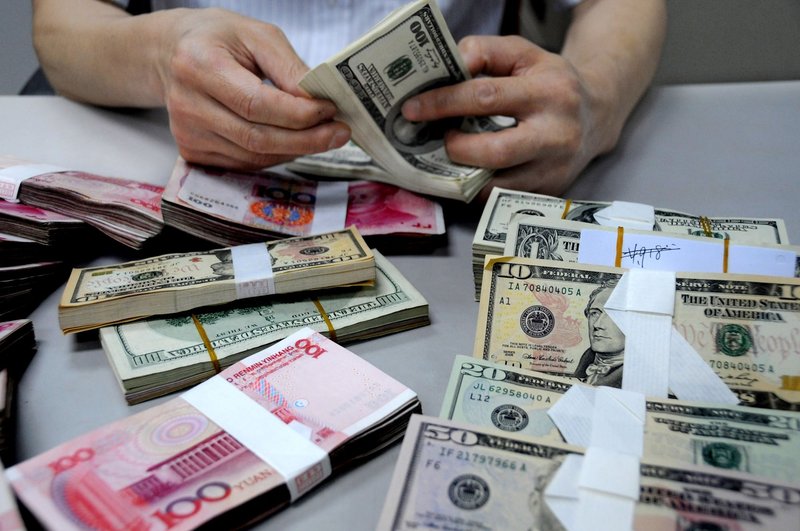
Four out of six major Chinese lenders (including CITIC, Bank of China, Industrial and Commercial Bank of China) assessed in Forest 500’s database have policy scores of zero. Just two Chinese banks score above zero: China Construction Bank scores three points and Agricultural Bank of China scores four points.
All the banks from China in this assessment also score zero points for their approach to human rights abuses associated with deforestation, apart from Agricultural Bank of China, which scores one point only.
By comparison, the overall highest scoring financial institution in Forest 500’s ranking is Schroders, which scores a total of 58.5 points, and has a policy to eliminate “forest-risk” commodity-driven deforestation from its portfolios by 2025.
According to Forest 500, a strong deforestation policy for a bank includes clear, time-bound commitments to eliminate deforestation and associated human rights abuses from its financing, applies to all high-risk commodities across all financial services, and includes robust implementation measures such as due diligence, monitoring and transparent reporting.
Global Witness approached Bank of China, Industrial and Commercial Bank of China and CITIC with an opportunity to comment on the report’s findings – including their financing activities and apparent lack of deforestation policies. None of the three banks responded to this request.
Recommendations: What should change
Chinese banks and their regulators must take their deforestation-risk portfolio seriously – the increasing financial support to the “forest-risk” companies shown by our analysis suggests a clear departure from China’s commitment and national policies.
The increasing flow of this funding, coupled with no national regulations to prevent it falling into the hands of deforesting companies, appears to contradict the commitments China has made on the international stage – such as those made under the Glasgow Leaders' Declaration, signed by China and more than 140 nations at COP26, that commits to realigning financial flows with forest protection.
Crucially, supporting companies with a track-record of causing environmental and social harm is also at odds with China’s national policies, especially those designed to guide and leverage finance to support the green and low-carbon transition.
For example, in 2022, a major overarching policy called Green Finance Guidelines set out detailed expectations for banks and insurance companies to identify, monitor, prevent and control their environmental, social and governance (ESG) risks.
The guidelines made it clear that banks should “strictly restrict” granting credit to clients that face significant environmental and social violations and risks (article 20) and strengthen ESG risk management in their credit and investment granting for overseas Belt and Road projects (article 25).
In recent years, China has made efforts to decarbonise its economy and balance growth within planetary boundaries. In fact, the world is increasingly looking to China for leadership in climate and nature actions as the country explores new opportunities in the clean energy sectors.
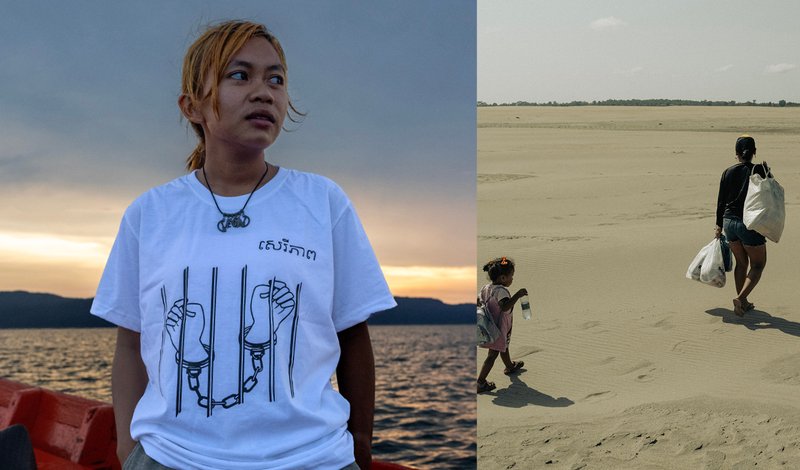
Since the 10th anniversary of the Belt and Road Initiative, China has also introduced a series of policies aimed at greening or reducing risks associated with overseas investments.
Despite being one of the world’s largest markets for “forest-risk” commodities such as soy, beef and palm oil, China currently lacks a national policy prohibiting the import of commodities linked to deforestation.
However, China has made notable bilateral commitments with key forest country partners. For instance, in April 2023, China and Brazil pledged to collaborate on eliminating deforestation and illegal logging, while also enforcing laws to prevent illegal imports and exports.
Major Chinese food companies and traders are piloting “deforestation-free” shipments of commodities like soy, and efforts are underway to make Brazilian beef supply chains to China more traceable.
Global Witness’ analysis suggests that Chinese banks and their regulators can do much more to reverse the environmental and social harm caused by financing deforestation-linked companies, which undermines China’s international climate and nature goals.
Global Witness calls for:
- Chinese banks should publish and implement clear zero deforestation and human rights protection policies when financing “forest-risk” companies.
- Banks should implement China’s 2022 Green Finance Guidelines by establishing due diligence processes to identify, monitor and screen out clients linked to deforestation.
- Chinese banks should establish open communication channels to rapidly receive and address deforestation allegations from international community.
- The Chinese banking regulator should strengthen green finance policies with clear requirements that banks cease financial support to companies with deforestation-linked supply chains.
Methodology
The Forests & Finance coalition dataset, produced by Profundo and analysed by Global Witness, identifies financial transactions with more than 300 company groups that are involved in the upstream segment of the beef, palm oil, pulp and paper, rubber, soy and timber supply chains in Southeast Asia, Central and West Africa and South America, collectively referred to as “tropical forest-risk sectors” as they drive most deforestation.
Profundo notes that this selection of “forest-risk companies” is “intended to be a representative sample of companies most impacting tropical forests ... Factors that led to their selection include the size of the company and land area of operation, access to information on their financing, and known negative impacts of their operations on tropical forests.”
Profundo’s data is compiled from Bloomberg, Refinitiv, Orbis and other sources, along with company reports.
The dataset captures six types of asset class and transaction, split into investments (2024; bondholding and shareholding), and credit (2010-2024; revolving credit facilities; loan issuance; bond issuance and share issuance).
Profundo applied "segment adjusters" to each company to estimate how much of a given portion of total finance could reasonably be expected to have financed the production or trade of a "forest-risk" commodity.
That means, for example, that finance provided by a Chinese financial institution to the US branch of a global conglomerate company is discounted, meaning all financing in this dataset are Profundo’s estimates of funding allocated towards commodity production in regions where deforestation occurs.
Read this page in
